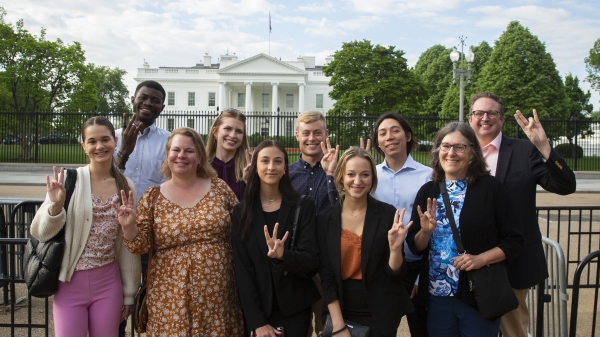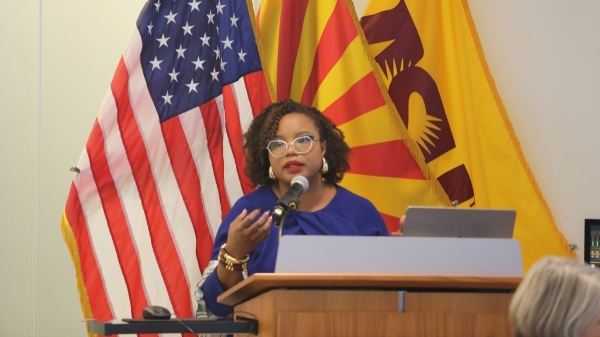Office of Naval Research awards ASU $1.6 million to study Russian propaganda

Professor Steve Corman
Arizona State University has been awarded a $1.6 million grant from the Office of Naval Research, a division of the United States Department of the Navy. The project will examine thousands of mass media and social media postings in the Baltic States — Lithuania, Latvia and Estonia — to help detect if Russia is planning a military invasion there.
Directing the research for the grant is Professor Steve Corman, director of the Center for Strategic Communication at the Hugh Downs School of Human Communication. ASU collaborators on the project include the School of Computing, Informatics & Decision Systems Engineering, and the Global Security Initiative. Part of the work will be subcontracted to the aerospace and defense company Lockheed Martin. Funding will span a three-year period.
“Dr. Corman has a long history of funded research dedicated to the application of theories of persuasive communication, to identify the ways in which strategic communication attempts to influence public opinion,” said Linda Lederman, professor and director of the Hugh Downs School of Human Communication.
Corman and his team won the grant in part due to a pilot project funded by Lockheed Martin examining Russian and pro-Russian press reports prior to the takeover of Crimea by pro-Russian separatists and Russian Armed Forces.
“About four months before the invasion of Ukraine, we saw huge changes in Russian anti-Ukrainian propaganda,” Corman said. “The Russians were clearly trying to rile up the Russian-speaking minorities to sow support for their cause. Obviously, there hasn’t been an invasion in the Baltics yet, but we will be trying to figure out if there are correlations between propaganda framing and conflict events in the Baltics.”
Russian strategic communication techniques were so successful that in 2014, a referendum, deemed unconstitutional by the Ukrainian Constitutional Court, was held on whether Crimea should leave Ukraine and join Russia. The official result was that a large majority of Crimeans wished to join with Russia.
“The Russians are known for using skewed facts, half-truths, rumors, and misinformation to work in their favor,” Corman said. “They were able to soften up the Russian-speaking minorities by planting stories and telling them that the Ukrainian government is corrupt, they are violating their human rights, and that the government is backed by Nazis. These narratives and other tactics were obviously quite useful to them.”
Corman added, “The Russians do this in their own backyard, and they’ve done it in Europe. They’re also doing it here in the United States, where they are trying to stir the pot by amplifying both sides of hot-button issues. It’s really important to keep our eye on them.”
More Local, national and global affairs

Conference draws professionals from across the US to collaborate on data research
By Lillian Finley Researchers, professors, students and nonprofit professionals gathered at Arizona State University’s Downtown…

Students travel to DC to present proposals on climate change
Ten students from Arizona State University’s Humanities Lab spring course — Diplomacy Lab: Brazil — traveled to Washington, D.C…

Economic development, the 'Black tech ecosystem' and a tale of two economies
When it comes to funding technology cluster initiatives, people across the country want to see how experts are analyzing long-…